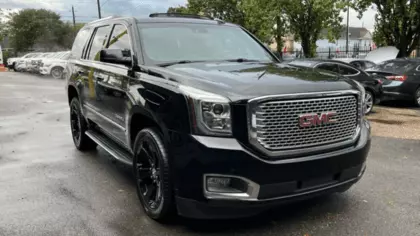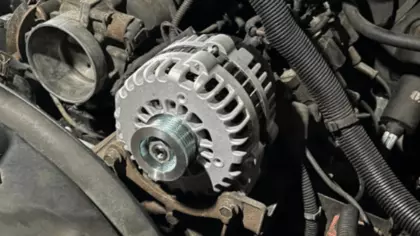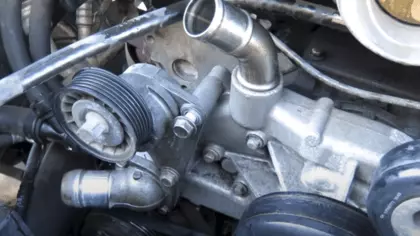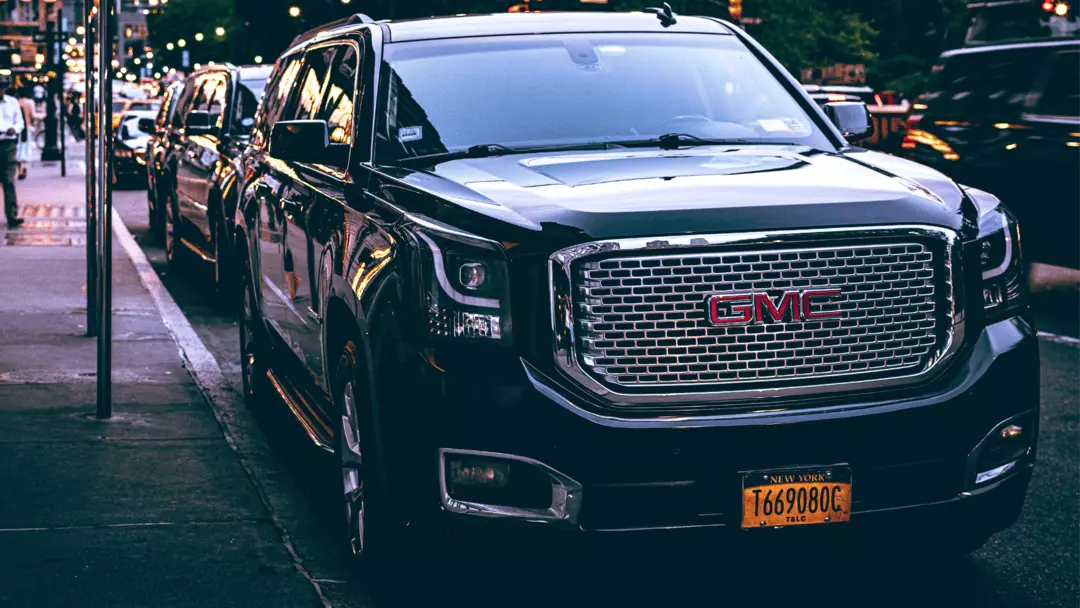Suppose, you have a GMC Yukon and you notice the vehicle is making noise. Generally speaking, it’s quite normal to have sounds but what if it generates humming, whining, or rattling sounds continuously? What if it won’t stop? Plus, why is “GMC Yukon making noise when accelerating?”
Most of the time, we uncover that the excessive noise coming from the car is caused by issues with the transmission, the wheel bearings, the clutch mechanism, its water pump, its turbocharger, and possibly factors like air leaks, a shortage of fluid, uneven tires, or a serpentine belt issue. Basically, the noise tries to indicate you need to repair or replace any parts of your GMC vehicle.
However, if you go through the entire article, you will explore the way your vehicle gets into trouble and makes weird disturbing noises. Additionally, we will try to share some easy steps to save your GMC Yukon.
Contents
- 1 GMC Yukon Cause and Sound Type Table
- 2 Why do I hear a noise when I accelerate?
- 3 Why is my GMC Yukon Making Noise When Accelerating – 12 Problems We Encounter
- 3.1 Transmission Problem
- 3.2 Uneven Tire Wear
- 3.3 Big Tread Block Tires
- 3.4 Malfunctioning Alternator
- 3.5 Clutch System Trouble
- 3.6 Problem With Turbocharger
- 3.7 Bearings in Your Transmission
- 3.8 Water Pump Issue
- 3.9 Serpentine Belt Issue
- 3.10 Air Leakage
- 3.11 Power steering Pump and Low Fluid Level
- 3.12 Grounding Issue Makes Stereo or Radio Noise
- 3.13 Faulty Torque Converter
- 4 How Do You Fix A Whining Noise When Accelerating – 10 Easy Solutions to Follow
- 5 Frequently Asked Questions
- 6 Final Words
GMC Yukon Cause and Sound Type Table
Just before we enter into the main topic, you should know the type of sound your vehicle usually generates. Therefore, we have a table given below.
| Cause | Type of Sound |
|---|---|
| Alternator | Consistent grating |
| Power Steering Pump | Loud and deep |
| Water Pump | Metal on metal |
| Serpentine Belt | High pitched Squeal |
| Radio | Whine from your speakers |
| Starter | A whirring noise |
| Torque Converter | Metallic Grind |
Why do I hear a noise when I accelerate?
It is possible you hear a GMC Yukon humming sound but we never know where it comes from and why it generates such noises. However, the noises you mostly notice are:
- Hearing loud screaming or squealing when accelerating says you should check the engine belt or RPM gauge.
- Additionally, a loud rumble sound while accelerating indicates an issue with your exhaust system.
Why is my GMC Yukon Making Noise When Accelerating – 12 Problems We Encounter

As we already mentioned in the introduction section, your vehicle starts to make different noises due to some factors. Especially the faulty things or attachments that disturb your driving time. Anyway, let’s read further to know how your car gets into trouble and how we should fix the car from such terrible sounds.
Transmission Problem
The first issue we would like to talk about is the transmission problem on your GMC Yukon. Whenever you hear a low-pitched humming noise, make sure you check the transmission.
Uneven Tire Wear
How does it feel to listen to an automobile making a loud noise as you are driving down the highway? Especially the humming noise indicates there is a risk for the vehicle that needs to be resolved as soon as possible.
While moving a 2015 GMC, some users reported experiencing weird noises. They checked countless things, but they failed to notice that the trouble was with uneven tire tread wear has the potential to produce noise.
Irregular tire wear is typically affected by mismatched wheels, poor wheel alignment, over or maybe under-inflated tires, and damaged suspension or steering elements. Therefore, you have to replace damaged shock absorbers or other suspension parts to eliminate the noise, but never use tires of any low-quality brands.
RELATED: Best Shocks for GMC Sierra 1500 4×4
Big Tread Block Tires
The kind of tire you use can sometimes be the key problem. Particularly if you start hearing the noise after installing new tires on the rims. However, tires with a big tread block design are recognized to be loud on the roadway.
You may have also observed that strange noises are produced in winter or off-road tires at high speeds due to the way air flows through extreme tread patterns. As a result, tire selection should be prioritized.
Malfunctioning Alternator

Why is my car making a whining sound when I accelerate? The alternator, in general, has many bearings that allow the alternator’s rotor to spin securely. Note that the alternator is connected to the battery lights. As a result, a problem with the alternator will result in your battery not being charged. But if the alternator makes noise under load, make sure you understand the carrying limitation.
Additionally, the vehicle alternator is linked to the serpentine belt, which turns while the engine runs. So, repairing or replacing the alternator can be the ultimate solution.
Clutch System Trouble
Sometimes the noise you don’t want to hear from your vehicle is caused by the clutch system due to manual transmission. Have you checked to see whether your GMC Yukon clutch release bearings are worn?
It would be much better if you replaced the clutch system after 80k miles or went to the mechanic to address the issue. Just before that, check to see if you have problems shifting gears or feel resistance in the clutch pedal, which could be heavier or non-existent. Remember that replacing the clutch will cost approximately $1000 and $1300.
Problem With Turbocharger
GMC Yukon whining noise when accelerating? Diagnose your turbocharger or what we call the supercharger. It’s likely that the limited power steering fluid is causing some unpleasant noises underneath your engine. Such a problem should be resolved as soon as possible, or the engine may become blocked.
Bearings in Your Transmission
Some of the users have complained that GMC Yukon humming sounds coming from inside where the bearings are here to blame. Basically, the problem is with the rolling sections and bearings that influence the power transmission to other sections of your automobile.
Also, the wheel bearings in each wheel hub frequently generate noise. A failed wheel bearing is more likely to generate a roaring sound or a whine when driving.
Also Read: How To Engage 4 Wheel Drive GMC Sierra
Water Pump Issue

You may have heard the barking of dogs or squeaking noises. It’s possible that the GMC Yukon is making such noises. It often occurs when the water pump fails. It also sounds like metal hitting metal. It has a deep tone and fixing or replacing it will cost a lot of money. The estimated replacement cost is between $711 and $843.
Serpentine Belt Issue
In general, the GMC serpentine Belt rotates by using the motion of the crankshaft. However, damaged belt grooves and smoothness reduce gripping power. Eventually, such situations result in a whining sound as you accelerate the Yukon.
Additionally, the whining sound is comparable to chipping or chirping. A bowed or loose pulley might enable the serpentine belt to produce sound. Therefore, we recommend replacing the belt.
Air Leakage
Air leaking from the air supply system often lets your truck whine when accelerating. You will possibly have a hole in one of your connectors or air hoses which is the main culprit. As a result, check the airflow system from the filter to the engine to identify the cause of such an accelerating note.
Power steering Pump and Low Fluid Level
Recently, an issue happened that the 2003 Yukon XL 2500 emits a grinding noise when accelerating, but he couldn’t figure out what was wrong with the car. The truck in hand is a 2003 Yukon XL 2500 4WD with 63k miles.
Such a problem could arise if the transfer case fluid has not been transferred. Low transmission fluid is the most common cause of whining or friction while in gear in both manual and automatic transmissions.
In addition, a failed power steering pump causes the automobile to produce noise as you accelerate. Fill it back up to the manufacturer’s fill line whenever the fluid level is low. Test the sounds to see if it gets louder when you spin the steering wheel on your Yukon.
Grounding Issue Makes Stereo or Radio Noise
Also, the radio or stereo may emit a whining noise, which is common for alternator whine. A weak ground wire most often causes the alternator to whine to the radio.
Faulty Torque Converter
When starting, a malfunction with the GMC Yukon torque converter might generate a whining sound. As a result, checking the transmission fluid is a smart starting point. If you find any metal flakes, repairing them is crucial.
How Do You Fix A Whining Noise When Accelerating – 10 Easy Solutions to Follow
Suddenly the 2021 GMC Yukon Denali 6.2 with only 628 miles started making subtle whining noise both at idle and in gear when driving. We have listed some solutions for your car trouble when accelerating. If you follow the given ideas, hopefully, the noise will go away and you will get your smooth peaceful ride again.
- You should upgrade the exhaust system after finding any faulty, loose, broken, or deteriorated parts.
- When it’s around 87 octanes, it will induce knocking, pinging, or rattling in a 2015 Yukon Denali. It occurs due to a misfire, which must be repaired by verifying the faulty spark plugs or the wires.
- If your GMC Yukon just has one faulty wheel bearing, make sure you replace the 2nd bearing on the same axle.
- A vehicle making a rattling or whistling noise might require the turbocharger replacement.
- Check the transmission fluid and refill the fluid as needed.
- Verify the exhaust hanger brackets for damaged or missing insulators. Attach the spare tire, and jack, with the lug wrench. If you find it pinging or detonation, utilize some seafoam to fix it.
- Get a steering unit lube package and oil the power steering system to decrease noise when shifting the wheels. If the power steering pump fails, you may expect to pay about $380 to $630.
- You could also replace any broken heat shields.
- The whining noise when accelerating is caused by the valve train requiring switching to a higher octane fuel.
- If the stereo or radio is not properly grounded, it will whine. So, ensure the grounding is good.
Also Read: Best seat covers for GMC Yukon
Frequently Asked Questions
1. Why 2015 Yukon Denali rattling noise when accelerating?
The GMC Yukon’s rattling tone when you accelerate comes because of a misfire. The noise occurs when you try to shift between the V4 and V8 engines in the GMC Denali, which can swap between the two. Additionally, your car may rattle if the engine mounts worsen or the catalytic converter fails.
2. Can an alternator make a whining noise when accelerating?
It’s true that if the alternator starts to break down, the engine will start to whine audibly while you speed or when the car is carrying a heavy load. Then, y Your car can whine as a result of the voltage regulator telling the alternator to generate more power. You can also hear noises when the belt that rotates the alternator pulley moves out of line or rubs against the pulley’s side.
3. Why is my GMC Sierra noisy when accelerating?
The major culprits of noise in a GMC Sierra include low oil, alternator belt problems, worn-out clutches, faulty engine transmissions, exhaust leaks, issues with the power steering pump, and occasionally heat shields or other parts. As a result, you must fix or repair any certain vehicle parts.
Also Read: How to reset check engine light on GMC Sierra
Final Words
Hearing noise while accelerating the GMC Yukon is frustrating part as the sound is disturbing. Therefore, we have shared what could be the reason that makes such various noises from inside the vehicle.
So, whenever you find any issue like the GMC Yukon making noise when accelerating, make sure you check the transmission, tires, bearings, clutch, air leaks, steering pump, ground trouble, or converter issue. Next time you encounter such issues, make sure you repair or replace any parts to decrease the noise just by following the given ideas above. Hopefully, you won’t have to be in trouble anymore with your GMC Yukon.

Hello, this is Wesley Shelton, currently working in a car restoration company for over 5 years. Before that, I was a worker at a small car repair shop. As I was a car freak from a young age and worked as a professional for over half a decade, I think I now know pretty much everything about every car and its parts. To establish my name as a professional and help others by sharing my knowledge, I’ve created this website, which I work on whenever I get free time. I hope you’ve enjoyed my informative blog!

